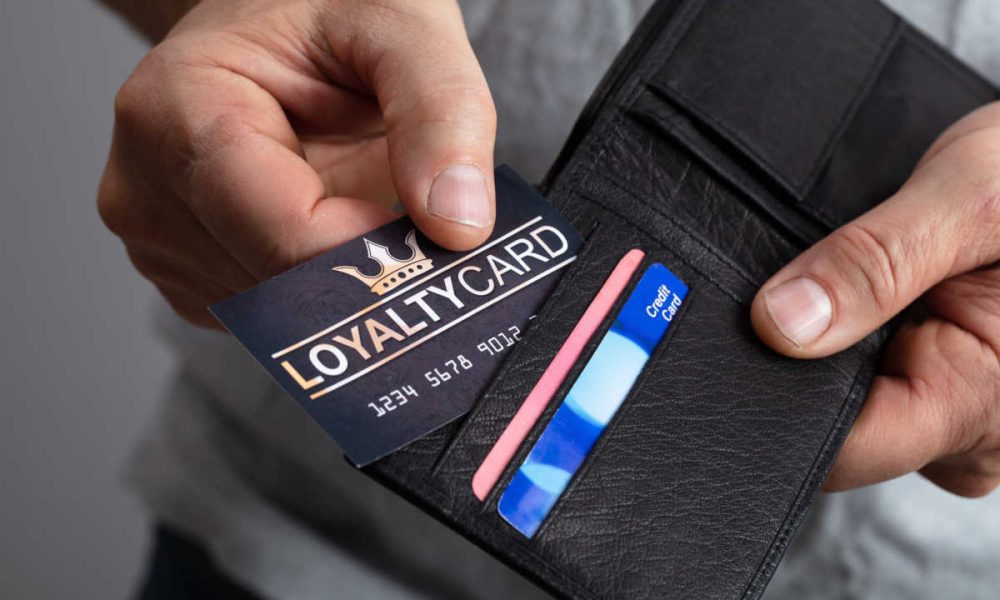Starbucks made big new last month when it added an NFT component to it vast Starbucks rewards loyalty program, but it’s far from the only big brand jumping onto the growing NFT bandwagon with both feet.
From Budweiser and GameStop to eyeglasses retailer Warby Parker, non-fungible tokens that can hold anything from collectable profile picture (PFP) characters to artwork, music and video are being embraced by companies looking to attract new customers and hold onto existing ones.
Read more: Starbucks Launches Loyalty Program Built on NFT Tech
But while Starbucks is offering special, resalable NFTs, Budweiser is one of a number of brands including Pinkberry and the Bonaroo music festival working with startup Hang, which uses an NFT membership platform and card to collect and use points earned by a variety of methods including spending, events, referrals and social media engagement.
Benefits can include standard points-based and tiered rewards, as well as discounts, events and access to special offerings.
“NFTs create a way for brands to incentivize their users to not only rank up to a new level in their program, but actually appreciate the value of the asset that they own,” Hang Co-founder and CEO Matt Smolin told CNBC in July. Those NFTs can also be resold on marketplaces, he added.
Then there’s Autograph, NFL legend Tom Brady’s latest venture into the crypto space — he’s already a spokesman and equity owner in the FTX exchange — which the company hopes can become “the future of fandom.”
It will offer experiential awards such as access to exclusive events, limited-edition digital and physical merchandise, private social media channels and forums.
Its kickoff offering in August was The Huddle, an NFT that evolves as Brady’s 2022-2023 season progresses, as well as a way of accessing real-life and digital events, limited edition digital content, merchandise and access to season highlight NFTs.
The goal, Autograph CEO Dillon Rosenblatt said in a statement, is to change today’s fandom, which “remains a limited, one-way conversation between fans and their idols” into “a richer, more interactive, community-driven experience.”
And GameStop is adding an NFT component to its loyalty program by offering members digital trading cards usable in the blockchain-based game “Gods Unchained” — which can also be purchased, CNBC reported last month.
Point the Way
And it’s not just NFTs. A growing number of companies, especially debit and rewards card-issuers, are embracing the idea of loyalty programs that let customers take their points in cryptocurrencies, seeing it as a way to attract crypto owners that the PYMNTS U.S. Crypto Consumers Study earlier this year found had reached nearly 60 million Americans.
See also: The Data Point: 23% of US Consumers Owned Cryptocurrency in 2021
While most of the crypto-spend debit cards issued by cryptocurrency exchanges like Coinbase, Gemini, and Crypto.com offer cash-back style rewards in a variety of digital assets, as are FinTechs like Venmo and SoFi. But a growing number of mainstream banks are embracing it as a rewards option.
Offering crypto rewards can be what Scott Young, vice president of innovation and design at payments credit union service organization PSCU a called “crypto lite,” explaining that it is a way of “offering at least some sort of crypto services without a lot of the inherent risk of” a full buy-hold-sell offering.
Also read: Short-Term Crypto Uncertainty is Long-Term Credit Union Opportunity
For customers, he added, it is a way of dipping a toe into crypto ownership without actually spending money out of pocket.
But it’s not just cards. In March, Shake Shack ran a promotion offering bitcoin rewards to customers who paid with Block’s Cash App Cash Card of with its Cash Boost rewards program points.
See more: Shake Shack Tests Crypto Rewards to Gauge Customer Interest
For all PYMNTS crypto coverage, subscribe to the daily Crypto Newsletter.
New PYMNTS Study: How Consumers Use Digital Banks
A PYMNTS survey of 2,124 US consumers shows that while two-thirds of consumers have used FinTechs for some aspect of banking services, just 9.3% call them their primary bank.
Sign up for our daily newsletter.
We’re always on the lookout for opportunities to partner with innovators and disruptors.
Learn More
We’re always on the lookout for opportunities to partner with innovators and disruptors.
Learn More

